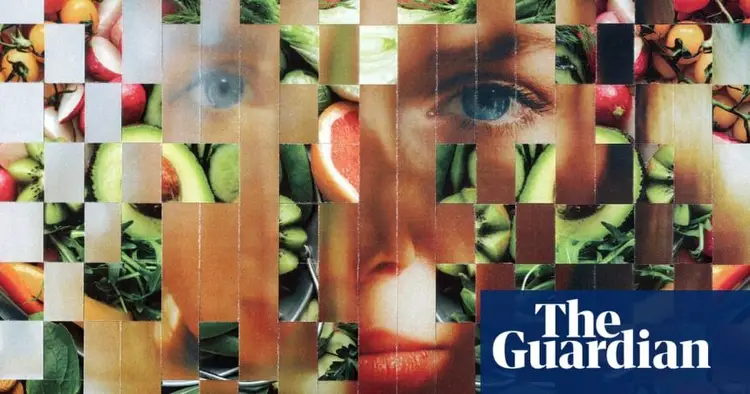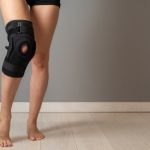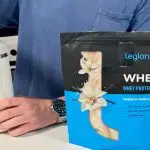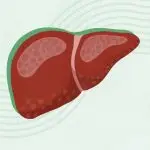Weeks after giving start to my son in early 2022, I discovered a lump in my breast. After an ultrasound, it was deemed suspicious and required a biopsy. The 2-week watch for outcomes was terrifying, not least as a result of I’ve a household historical past of breast most cancers. The power eczema I’ve at all times suffered from flared up, due to stress, sleep deprivation and the upheaval of early parenthood.
The lump turned out to be benign, however the expertise introduced my mortality into sharp reduction and my nervousness ranges to new highs. After treating my pores and skin with spherical after spherical of prescription medicine, to little avail, I grew to become dedicated to “naturally” curing the eczema, staving off illness and perfecting my already cautious food regimen.
After years of yoga and meditation follow, my on-line feed teemed with content material by health and wellness instructors, which social media algorithms had helped curate and pushed my method in the course of the pandemic. Participating with just a few posts on tips on how to relieve pores and skin irritation led to an extra onslaught of wellness and diet content material, and numerous rabbit holes opened up earlier than me.
Diet has turn into central to a story of private accountability, as evidenced by one other simplistic wellness mantra: ‘we’re what we eat’
My job is to analysis public well being and political dis- and misinformation – although I want the time period dangerous on-line affect, because the easy delineation between fact and lies has all however evaporated lately. However by the point of my well being scare, I needed to imagine that “meals is drugs”, because the mantra of wellness Instagram goes.
For shut to 2 years, I attempted to be “nicely”. I stop alcohol and ultra-processed meals (UPFs), which research have linked to a bunch of illnesses when eaten in important portions. However what began as pretty innocent or arguably smart experimentation, like slicing again on sugar to see if I felt higher, snowballed right into a preoccupation with meals that actively harmed my life.
I gave up on a rising checklist of meals that the wellness trade maligned, together with dairy, gluten, eggs and nightshades like eggplant and tomatoes. I rotated amongst restrictive diets touted by influencers for his or her inflammation-reducing properties: low-histamine, vegan, paleo and totally different variations of intermittent fasting. I made excuses to get out of social occasions and restaurant outings as a result of it will imply relinquishing management over the elements I used to be consuming.
Like many individuals with an consuming dysfunction, I denied that I had one. This was acquainted behaviour. As a youngster, I used to be hospitalised with, then recovered from, anorexia. Having been there earlier than, I used to be in a position to acknowledge the trail and take steps to disengage, primarily with the assistance of remedy. My clean-eating obsession lasted longer than it ought to have, however I did slowly fall out of affection with the illusory security that got here with consuming the right meals.
Why we get drawn in by misinformation about well being and diet
With my physique feeling uncontrolled, I used to be determined to regain what little company I may. I instructed myself there was no hurt in a little bit of dietary experimentation and gleaning some recommendation on-line. I simply thought I might be savvy sufficient to take helpful suggestions whereas discarding the nonsense.
In accordance with one survey by the diet monitoring app MyFitnessPal, 87% of millennial and gen Z TikTok customers take a minimum of a few of their well being and dietary recommendation from social media, although solely round 2% of dietary content material on social media matches public well being tips.
Whereas the science of what constitutes a nutritious diet is broadly clear, it doesn’t make up for creaking well being providers and a bunch of nonetheless poorly understood, usually power, situations. As a substitute, many individuals now self-manage their well being, adopting restrictive diets, stocking up on supposed miracle elements and taking recommendation from a bunch of voices – principally on-line – within the hope of discovering a magic bullet.
A nutritious food regimen is important to good well being. Nonetheless, on social media the claims go additional: there is no such thing as a situation that may’t be cured with diet, no sickness that may’t be prevented with a strict food regimen plan and no criticism that may’t be concurrently blamed on dysfunctional meals programs and the person’s failure to rigorously dodge toxins.
Legendary beliefs about meals usually are not new and return millennia, however many years of neoliberalism have positioned the onus of well being on people. Diet has turn into central to a story of private accountability, as evidenced by one other simplistic wellness mantra – “we’re what we eat” – although wellness influencers have little to say in regards to the components, together with entry and social inequities, that decide what we will eat.
Influencers supplied certainty in regards to the “root trigger” of my ills, which they attributed to non-scientifically recognised situations together with leaky intestine, mould toxicity and mineral depletion. Their suggestions have been the identical: get rid of “poisonous” meals, resembling gluten (which greater than 20% of People reportedly keep away from, although just one% of the inhabitants has celiac illness); kale, which supposedly causes “oxalate poisoning”; and seed oils, usually likened to “engine lubricant”. The answer? Dietary supplements – which in addition they occurred to be promoting.
The pandemic made dietary fearmongering extra prevalentDerek Beres, co-author of Conspirituality
Derek Beres, co-author of Conspirituality, which examines the intersection of wellness tradition and conspiracy principle, used to have orthorexia, an consuming dysfunction characterised by an obsession about consuming solely wholesome meals. He sees Covid as a turning level for the unchecked circulation of dietary misinformation. The pandemic allowed the wellness trade, primarily based on an ethos of self-realisation and bodily sovereignty, to unfold issues about purity and contamination.
“The pandemic made dietary fearmongering extra prevalent due to all of the binaries it has arrange,” Beres says. Covid damage the well being and diet industries in different methods. “Many individuals who now commerce in dietary misinformation misplaced their potential to make a dwelling with individuals bodily, (then) turned to being on ‘downlines’ for meals corporations and complement corporations.”
Mistrust of medical establishments grew throughout Covid, and plenty of sought options: in accordance with one 2022 ballot, near one-fifth of gen Zers belief TikTok greater than their healthcare supplier. Many wellness influencers parrot the language of affected person empowerment and political literacy (because the “do your individual analysis” QAnon slogan confirmed), exploiting a collective want for data and management in a world fraught with murky company pursuits.
Wellness influencers usually exploit actual inequities and ache: they attraction to girls affected by painful hormonal situations for which analysis funding stays insufficient. They spark fears amongst new moms who really feel socially remoted and need to shield their kids. More and more, they converse to males with well being complaints and people who really feel adrift on the earth, providing them politicised guarantees that the right food regimen will lead them again to a golden age of dominant masculinity. In addition they legitimately level out our damaged meals programs and the affect of company pursuits with regards to, say, the proliferation of UPFs. Making these broad claims permits them to unfold many others unchecked.
Within the wild west of #cleaneating Instagram and TikTok, influencers’ credentials fluctuate, as does their potential to hurt. Some are certified well being specialists who take just a few scientific shortcuts when presenting info. Others supply dietary recommendation with near no credentials and demonize kale whereas selling the carnivore food regimen. On the excessive finish of the spectrum, they unfold conspiracy theories in regards to the “nice reset” and declare elites need to poison others with particular diets.
“Being an skilled in a single area, particularly with regards to well being, doesn’t make you an skilled in every thing,” Beres says. Stanford neuroscientist Andrew Huberman has confronted criticism for exaggeration and oversimplification on his in style scientific podcast Huberman Lab, which options skilled company and has lined subjects together with hashish, microplastics and pores and skin well being.
It’s not vital for influencers to lie outright to their audiences to serve their very own pursuits, although many do. As a substitute, they generally oversimplify, share half-truths and extrapolate from complicated analysis findings. In well being and diet, scientific proof at all times comes with nuance and may be troublesome to funnel into particular conclusions. Consideration-grabbing media headlines additional contribute to the confusion, to the extent that we will by no means really feel positive whether or not eggs are a superfood or a silent killer.
There are fascinating frontiers of analysis exploring the connection between meals and well being. The intestine microbiome is a working example: rising analysis is discovering new hyperlinks between the intestine and a bunch of illnesses (together with pores and skin situations). Influencers take this rising proof and loudly proclaim that any situation is a positive signal of a dysfunctional intestine, hawking at-home microbiome checks and probiotic dietary supplements, which analysis suggests obtain little.
skip previous publication promotion
Sensible recommendation, skilled insights and solutions to your questions on tips on how to reside a great life
Privateness Discover: Newsletters might comprise information about charities, on-line adverts, and content material funded by outdoors events. For extra info see our Privateness Coverage. We use Google reCaptcha to guard our web site and the Google Privateness Coverage and Phrases of Service apply.
after publication promotion
All of this results in a chaotic on-line setting the place information and fiction sit facet by facet, and algorithms favour one-minute clips geared for virality. With many People priced out of healthcare and NHS ready lists within the UK changing into ever longer, well being influencers who challenge authenticity are getting into these gaps to monetise unproven checks and cures.
The instant harms are plain to see. People are forsaking therapy for doubtlessly life-threatening illnesses; taking dietary supplements, which may comprise unapproved, harmful or banned elements; and creating disordered consuming. There’s a pernicious long-term impact: rampant misinformation normalises our mistrust of establishments, and we turn into used to not receiving dependable info.
How to withstand the onslaught of misinformation
I recognised social media was having a nasty affect on me, and {that a} historical past of consuming problems made me ill-equipped to deal with the dietary misinformation served by algorithms; my important pondering faltered within the face of emotional vulnerabilities.
These vulnerabilities are exacerbated by social media platforms’ curation programs: analysis has discovered that platforms’ algorithms funnel customers in the direction of increasingly excessive food regimen content material.
Resisting the misinformation onslaught takes ever higher efforts, and now we have turn into improvised factcheckers, a difficult process as influencers turn into more and more expert at muddying the waters about their credentials.
Whereas searching for recommendation from a healthcare supplier must be the primary port of name for anybody involved about their well being and food regimen, for these nonetheless trying on-line, Beres recommends following degree-qualified nutritionists or dietitians with medical expertise (referred to as “registered” or “accredited” relying on the nation) on social media.
Danielle Shine is an Australian registered dietitian and PhD candidate who researches diet misinformation. She makes use of her Instagram account for public training, debunking food-related issues fuelled by wellness influencers. Shine is amongst quite a lot of public communicators who’re sharing essentially the most up-to-date scientific proof on diet with the general public, and offering nuance in a web based panorama that doesn’t go away a lot room for it.
If influencers share weak types of proof, resembling animal-based analysis or weblog posts, they’re not price followingDanielle Shine, registered dietitian
She cautions in opposition to commentators who use wellness buzzwords resembling “clear”, “good”, “dangerous”, “poisonous”, “junk” and “poison” to explain meals, and who converse in absolutes about diet and its results on the physique, by stating, as an example, that “sugar is poisonous’” or “seed oils are inflammatory”. “Influencers who make these sorts of oversimplified and deceptive statements display a big and harmful lack of meals and diet data,” she says.
Dependable well being communicators, she provides, will embody a wealth of strong references on their posts to permit readers to test their claims, notably respected human research indicated by DOI or PMID numbers. “If influencers share weak types of proof, resembling animal-based analysis or weblog posts, they’re not price following,” she says.
She additionally recommends being alert to influencers’ monetary pursuits, and to what they’re promoting. “Influencers who unfold diet misinformation usually promote and promote non-evidence-based merchandise, together with direct-to-consumer food-intolerance and microbiome checks, books endorsing restrictive diets, costly meals merchandise marketed as being superior to extra reasonably priced options and non-accredited on-line programs,” she says.
Like Beres, she says she is cautious of influencers who stray outdoors their area of experience when talking about well being. “If diet professionals enterprise outdoors their scope – for instance, to debate hormone well being – it’s essential they collaborate with or seek the advice of certified subject-matter specialists resembling an endocrinologist to make sure the knowledge they supply is correct,” she provides.
Whereas every individual’s path to restoration is totally different, just a few issues have helped me make my peace with meals. I cleaned up my social media feed, unfollowing many wellness influencers, biohackers and “holistic well being” advocates, although I nonetheless observe a handful of clinically skilled nutritionists who share recipes. I tweaked my social media settings by muting nutrition-related key phrases, hiding health-related adverts and liking posts unrelated to diet.
I reduce on meals guidelines, protecting solely broad ones that really feel manageable. Whereas this felt disappointing at first – I needed to imagine in a simple “hack” – it grew to become liberating. In the present day, I principally prepare dinner from scratch with complete meals, however not shun particular meals teams. I’ve discovered to simply accept a degree of uncertainty. Eggs is likely to be good or dangerous, relying on whom you ask, however given my love of shakshuka, I’ve turn into comfy with not likely realizing.
I’ve additionally began practising “lateral studying”, a technique put ahead by the misinformation researcher Mike Caulfield, creator of the digital literacy information Verified (2023), to assist people restrict their publicity to pervasive dangerous science and resist fixed assaults on their consideration. The tactic includes evaluating the supply of on-line content material, figuring out unreliable audio system and rapidly shifting on. “Slightly than asking, ‘Is that this true?’, the extra helpful query is: ‘Do I do know what I’m right here?’” as Caulfield put it in a single interview.
Maybe extra importantly, I slowly rediscovered the enjoyment and which means of meals as I ended fascinated by food regimen as a cure-all. This has made consuming nutritious meals extra pleasurable. Once I prepare dinner sauerkraut-based dishes, I not surprise in the event that they account for my “superfood” consumption for the week. As a substitute, I take into consideration how my Polish grandmother cooked them for me as a baby, and the way she served them with potato dumplings on her favorite white-and-blue pottery. In different phrases, I consider residence.








